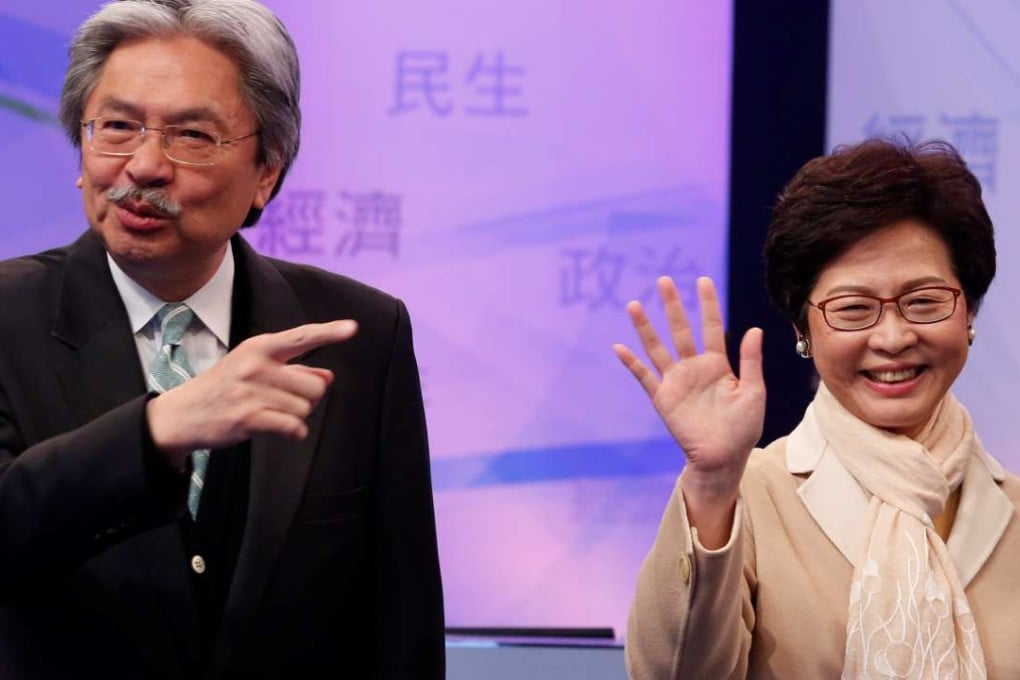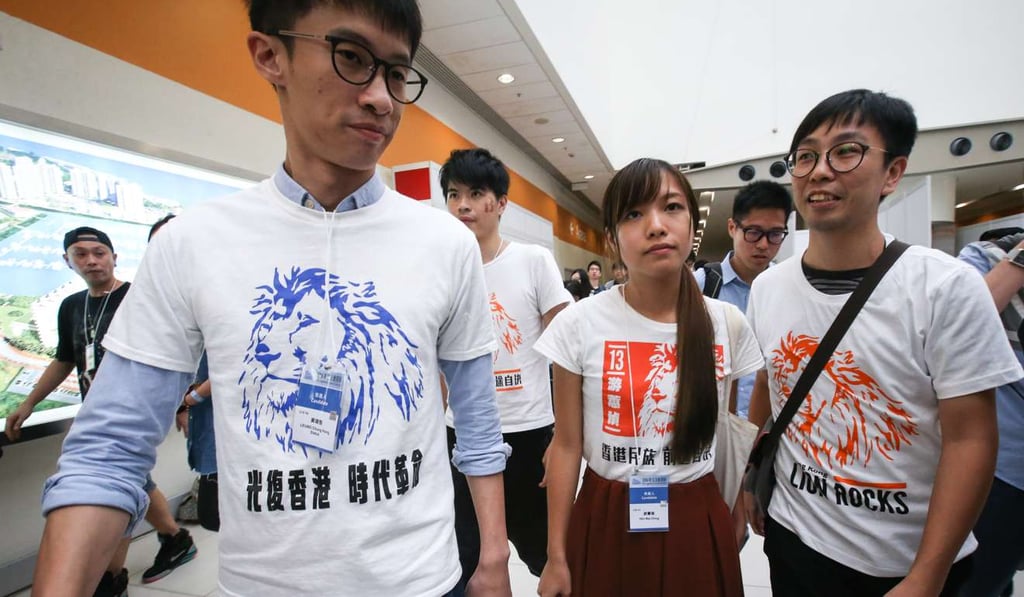Advertisement
China’s might and Hong Kong’s autonomy: can Carrie Lam find a balance between the two?
Regina Ip says many of our problems come down to the Hong Kong government’s inability to balance ‘one country’ and ‘two systems’. Carrie Lam, if she wins the leadership race, should brace for an even more challenging task
Reading Time:3 minutes
Why you can trust SCMP

Just as it has been said that every financial crisis is different, so the dynamics of Hong Kong’s chief executive elections have varied greatly every five years they have been held.
The first two chief executives were elected in a relatively uneventful way. The race became dramatically more competitive in 2012 when then Executive Council convenor Leung Chun-ying led an insurgency within the pro-establishment camp against the front runner, former chief secretary Henry Tang Ying-yen, and won. Once competition got out of the bag, in spite of the highly restrictive system of electing Hong Kong’s chief by a 1,200-strong committee, Beijing is finding it extremely hard to get the system back under control.
The 2017 election is further complicated by the fact that Hong Kong is facing unprecedented polarisation after the city went through a debilitating 79-day Occupy Central protest movement, followed by a highly acrimonious debate on constitutional reform that ended in a defeat of the government’s motion by an unexpectedly wide margin.
Advertisement
The deep divisions in our society – the young separatist challengers against the pro-China establishment, the cynics against the believers, the have-nots against the haves – were reflected in the outcomes of recent district and Legislative Council elections. Pro-establishment old-timers lost heavily in the district elections in 2015.

The rise and fall of Hong Kong’s pro-independence lawmakers
In the following year, several separatist-leaning young radicals got elected into the Legislative Council. In the election of members of the chief executive Election Committee last December, anti-establishment forces garnered a record number of 326 seats, far exceeding the 205 seats won by the pan-democrats in 2011.
Advertisement
Select Voice
Select Speed
1.00x